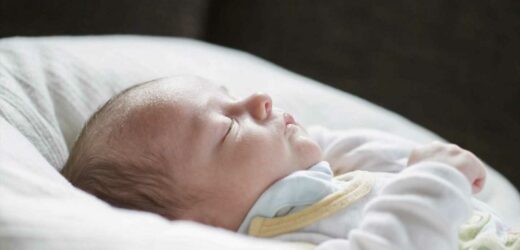IF you're a new parent then it's likely you're feeling a little bit sleep deprived.
For a lot of people, the first time your bundle of joy sleeps through the night is a big milestone, but how likely is it to happen again?
The NHS says that it's normal for some babies to sleep more than others and that each child has their own sleep pattern.
Do babies ever sleep through the night?
There is a myth making the rounds that babies should sleep through the night from the age of 12 weeks.
Not only is this extremely rare, it can also add extra pressure on parents who are desperate for a full night’s kip.
The NHS states: "If you're breastfeeding, in the early weeks your baby is likely to doze off for short periods during a feed. Carry on feeding until you think your baby has finished or until they're fully asleep. This is a good opportunity to try to get a bit of rest yourself.
"If you're not sleeping at the same time as your baby, don't worry about keeping the house silent while they sleep. It's good to get your baby used to sleeping through a certain amount of noise."
Usually a baby will start sleeping through the night from between six and nine months old.
It is around the four-month mark that important developmental milestones can totally change the baby sleep game, meaning a full night’s sleep could be on the cards very soon.
Also, it is worth noting that when we talk about babies sleeping all night, we don't mean that they will suddenly be out for the count for double-digit hours.
What this actually means is that the baby will be less likely to wake up crying in the middle of night or needing a night-time feed for a stretch of five to six hours or more.
While this doesn't necessarily mean that baby won't want to be fed, or be snuggled, it should indicate that they no longer need additional sustenance in order to make it through until their morning meal.
What are baby sleep cycles?
Baby sleep cycles are very different to adult sleep cycles as babies need far more hours of rest than grown-ups.
A newborn's sleep cycle is quite simple and has only two stages – quiet and active sleep.
It is also much shorter than an adult’s, with an average of 50-60 minutes for the first nine months, often even shorter.
When a baby first falls asleep they go into active sleep, which is very similar to REM sleep for adults.
During this stage, babies are also more likely to wake up.
How long will my baby sleep?
Here we take a look at how long your baby will sleep for depending on its age.
Birth to Three Months
- Every baby is different, but most infants this age will sleep between 14 and 17 hours a day, including naps.
- Some newborns might get by on less (11 to 13 hours) and a few prefer more sleep time (18 or 19 hours).
- Waking several times at night to feed is completely normal.
Three to Six Months
- After four months of age, the baby will likely sleep between 12 and 15 hours a day, including naps.
- Many infants aged between three and six months are able to sleep five hours at a time, which experts consider “sleeping through the night.”
Six to Nine Months
- The baby is finally at the age when they will reliably sleep for much longer at night.
- By six months of age, many infants no longer require night feedings, and the majority of sleep will now occur after dark, along with a couple of naps during the day.
A newborn will spend about 50 per cent of his or her sleeping cycles in this stage, as opposed to an adult, with only 20 per cent.
About halfway through a sleep cycle, the baby falls into quiet sleep, which is characterised by slower, rhythmic breathing, less movement and no eyelid fluttering.
Quiet sleep is the end of the sleep cycle, which means that the baby will either wake up or return to active sleep.
From six months onwards, babies develop more stages that resemble adults and gradually replace quiet sleep.
The duration of their sleep cycles also lengthen and the time spent in active sleep shortens.
Until the age of at least a year, babies and infants will have a much lighter sleep than an adult.
From about six months old, babies can sleep for longer stretches, but it can take a while for them to build to a solid, uninterrupted 8-12 hours’ sleep with no whimpering or wakefulness whatsoever.
When is it ok to wake a sleeping baby?
Once a baby is around 8 to 10 months of age, getting too much sleep during the day may interfere with their night-time cycle and stop baby sleeping through the night.
This is why, at this age, it becomes vital to gently wake them up from a prolonged nap.
Experts suggest that a four-month-old baby should be awake for about three hours before bedtime.
Source: Read Full Article



